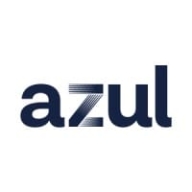

IBM BPM and Azul Zing compete in the business process management and JVM markets, respectively. IBM BPM appears to have an advantage in business process management due to its superior workflow features and integration capabilities, while Azul Zing is favored for Java application performance optimization.
Features: IBM BPM offers advanced process automation, integration features, and compliance with BPMN 2.0 standards, making it efficient for managing complex business processes. Its strong integration capabilities and ability to produce quick workflow designs also contribute significantly. Azul Zing, on the other hand, features pauseless garbage collection, high-performance JVM capabilities, and tools for memory leak detection, enhancing application speed and resilience.
Room for Improvement: IBM BPM could improve its user interface, reduce its complexity in deployment, and offer better analytics functionality. Azul Zing might benefit from expanding its documentation, enhancing support for broader Java frameworks, and improving its deployment simplicity even further.
Ease of Deployment and Customer Service: IBM BPM provides a streamlined deployment process with strong support and extensive documentation, facilitating quicker implementation in enterprise settings. Azul Zing offers a straightforward deployment model and responsive customer support, excelling in technical performance support rather than the comprehensive service framework IBM BPM provides.
Pricing and ROI: IBM BPM generally has a higher setup cost, justified by delivering substantial ROI through enhanced productivity and process optimization. In contrast, Azul Zing requires a more modest initial investment, providing ROI through improved application efficiency and reduced downtime, making it a cost-effective option for performance-critical environments.

Zing is an advanced Java runtime (JVM) designed for enterprise workloads that require any combination of large memory, high transaction rates, low latency, consistent response times or high sustained throughput. Zing eliminates Java garbage collection as a factor in production, and conforms to the Java SE standard for Java SE 8, 7, and 6.
IBM BPM is a business process management tool that provides a robust set of tools to author, test, and deploy business processes, as well as full visibility and insight to managing those business processes. The solution provides tooling and run time for process design, execution, monitoring, and optimization, along with basic system integration support. To support various levels of complexity and involvement with business process management, there are two different editions of the product: IBM BPM and IBM BPM Express.
IBM BPM Features
IBM BPM has many valuable key features. Some of the most useful ones include:
IBM BPM Benefits
There are many benefits to implementing IBM BPM. Some of the biggest advantages the solution offers include:
Reviews from Real Users
IBM BPM is a solution that stands out when compared to many of its competitors. Some of its major advantages are that it’s good for developing complex apps, is robust, and has helpful team management and process performance features.
Zoran C., Owner/CEO at IT SPHERE, says, “It is perfect if you have to develop complex apps without much coding (only java script). It is also good if you don't have much IT resources in your company and would like to involve business analysts in the process of developing apps. My opinion is that it can do about 50% of all developers' work.”
Suhas V., BPM Architect at GBM, mentions, “Overall the solution is robust and has the ability to integrate with any product for complex workflows."
A BPM Consultant at a financial services firm comments, "Some of the features that I like the most are team management and process performance. They are both very useful and very powerful with regard to the workflow."
A Digital Banking & Innovation Director at a financial services firm expresses, “The processing functionality makes it easy to change processes and workflows easily.”
We monitor all Application Infrastructure reviews to prevent fraudulent reviews and keep review quality high. We do not post reviews by company employees or direct competitors. We validate each review for authenticity via cross-reference with LinkedIn, and personal follow-up with the reviewer when necessary.